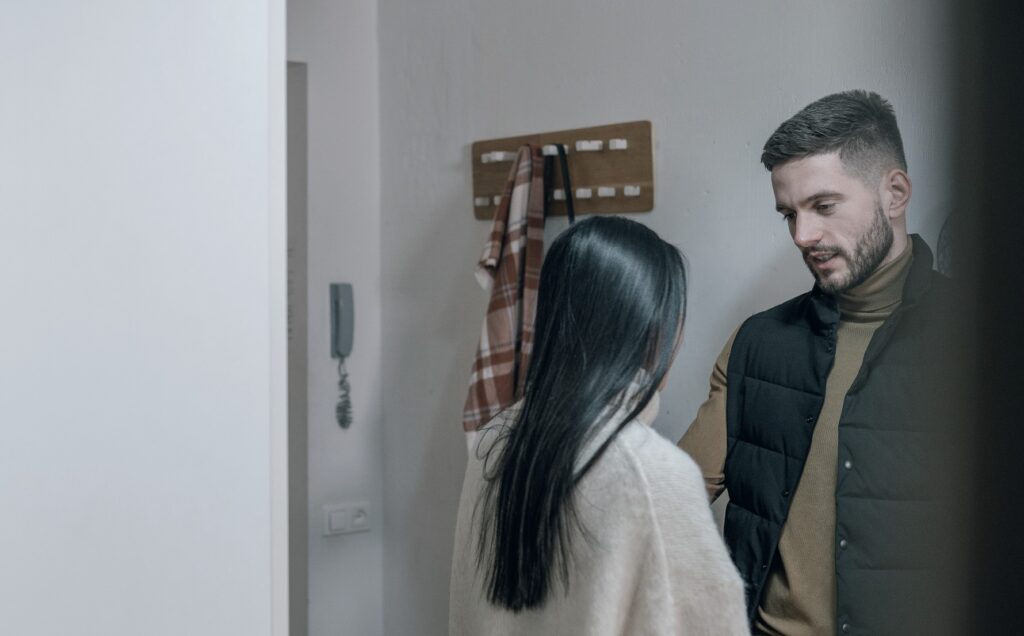What’s harder—love or calculus?
Based on the current divorce rate, we’d put our money on love. So, why don’t all 16-year-olds get a mandatory course? Consider this article the first step in your relationship education.
Change the story
When our relationships go south, most of us have a story we tell ourselves. “I’m too fucked up for marriage.” “People can’t be trusted.” “When I finally get honest, she leaves.”
The story convinces us that we’re destined for heartbreak and solitude—to repeat the same brutal pattern over and over again.
That story is a load of bullshit.
“Until you make the unconscious conscious, it will direct your life and you will call it fate.” – Carl Jung
It’s a psychology cliché to blame everything on your parents. When it comes to relationships, the cliché holds true. If you look closely at the pattern you’ve been repeating in relationship after relationship, you’ll probably see some similarities with the way you were raised. Sometimes, the pattern goes back to experiences we can’t even remember.
The beginning of relationships
In your first 18 months of life, the most significant nerve pathways in your brain were all laid down and those pathways impact your relationships for the rest of your life. Babies look to their parents for answers to basic yet critical questions: What do I need to live? Am I important? Can I rely on others? How do I cope?
Some of us had healthy relationships with our parents where they were well attuned to our needs—walking the line between caring and overwhelming, supportive and distant. A healthy parent-child relationship doesn’t mean the child experiences no trauma. It means the parent could provide a safety net for the child to fall back on during tough times, while also giving them the confidence to explore. This is called a ‘secure attachment style’.
For those of us who were not so lucky, our relationship with our parents fell into one of three ‘insecure attachment styles’—anxious, avoidant, or disorganized. Maybe when you were a baby, your parents were very busy and you had to cry endlessly to get their attention. As an infant, exaggerating your pain helped you survive. This is characteristic of anxious attachment and that pattern carries right into adulthood. For an anxiously attached person, when a fling doesn’t text them back, their subconscious will go right back to that early experience of abandonment.
On the other hand, if your parents were overbearing and controlling, you might be the one taking weeks to respond to someone you care about—an example of avoidant attachment. Avoidant people learned early on that the only people they can rely on are themselves. Their greatest fear is to lose their independence—to be engulfed.
Disorganized attachment is much less common and characterizes survivors of childhood abuse who vacillate between anxious strategies and avoidant strategies.
You’ve no doubt a completely different person now than you were at age 2. However, you might still view your relationships today through that same lens you applied to your parents in childhood.
You can change your attachment style
The good news is your attachment style isn’t a life sentence. Far from it. Research shows that people with insecure attachments to their parents can build relationships with secure attachments as adults. That first secure attachment doesn’t have to be with a significant other. It could be a sibling or friend. For a lot of people, their first secure relationship is with a counsellor. You’re paying them to treat you well, after all!
Counsellors can also help you dissect the lens, perspectives or experiences that you’re bringing from your past relationships to your current relationships. They’ll help you determine if that lens is serving you or holding you back.
Whatever your relationship story is, you can rewrite it. It will take some hardass work, but we can make you one promise: it will be a hell of a lot easier than a breakup.
To learn more about your personal attachment style, take this free quiz.
The quality of a client’s bond with their counsellor is a strong predictor of the success of talk therapy.
If you want to develop healthier relationships, Manifest Wellness counsellors can help. Call 604.913.5767 to learn more.
Stat references
- According to one estimate, half the population has a secure attachment style, while 20% are anxious, 25% are avoidant and 5% are disorganized.
- Perhaps the most well known proof that relationships are hard: 40% of Canadian marriages end in divorces
- Two thirds of American daters say that dating is “not going well”





